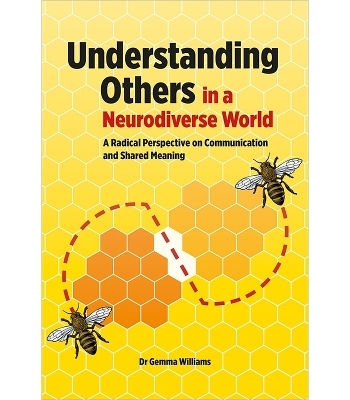
Understanding Others in a Neurodiverse World
Pavilion Publishing and Media Ltd (Verlag)
978-1-80388-370-0 (ISBN)
Autistic people often experience difficulties with social communication. This can impact all areas of life and can contribute to poorer mental health outcomes, reduced opportunities for fulfilling social interactions and barriers to health and social care, education and employment. This book offers a new way of understanding why cross-neurotype mis attunements in communication may happen by taking the double empathy problem - the reframing of social communication difficulties as a two-way problem, not simply the result of an autistic 'deficit' - and a little-known cognitive linguistics theory, 'relevance theory', as a starting point.
Weaving together threads from critical autism studies, a social-justice perspective, cognitive science, linguistics and sociology, this book leads the reader towards a new, radical perspective of how we can understand these breakdowns in understanding.
Gemma Williams is an autistic autism researcher, musician and ex-beekeeper, living in Sussex. Gemma is a linguist by heart, but following her ESRC Postdoctoral Fellowship at the University of Brighton in Social Policy, her research interests have extended to more social justice-related issues, including: autistic people's experiences of loneliness, barriers to healthcare for neurodivergent people, sensory environments of public spaces and, most recently autistic reproductive and gynecological healthcare. Gemma is a member of the Westminster Commission on Autism and an Associate with the National Development Team for Inclusion where she's contributed to a number of commissioned reports, projects and inquiries aimed at improving service provision for autistic and neurodivergent people within the UK, NHS England and Local Authorities.
Introduction
Section 1 - Considers different perspectives on how communication and shared meaning is achieved
1: Knowing and understanding by being in the world
2: Knowing and understanding others
3: Making sense in a complex world
Section 2 - Provides a critical summary of what has been meant by the term 'autism' since its conception
4: So, what is autism?
5: Autistic language use: a short history
Section 3 - A suggestion for how we might understand why communication often breaks down between autistic and non-autistic people
6: The Double Empathy Problem
7: Mind the gap
8: But how's that relevant?
Section 4 - considers the social exclusion of autistic people and how this can add to the communication breakdowns and impact access to services and quality of life.
9: The importance of getting it right
10: The importance of intersectional thinking
11: Towards a connected, inclusive society
| Erscheinungsdatum | 22.08.2024 |
|---|---|
| Verlagsort | Hove |
| Sprache | englisch |
| Maße | 156 x 234 mm |
| Themenwelt | Sachbuch/Ratgeber ► Gesundheit / Leben / Psychologie ► Krankheiten / Heilverfahren |
| Sachbuch/Ratgeber ► Gesundheit / Leben / Psychologie ► Psychologie | |
| Medizin / Pharmazie ► Medizinische Fachgebiete ► Neurologie | |
| ISBN-10 | 1-80388-370-7 / 1803883707 |
| ISBN-13 | 978-1-80388-370-0 / 9781803883700 |
| Zustand | Neuware |
| Haben Sie eine Frage zum Produkt? |
aus dem Bereich


